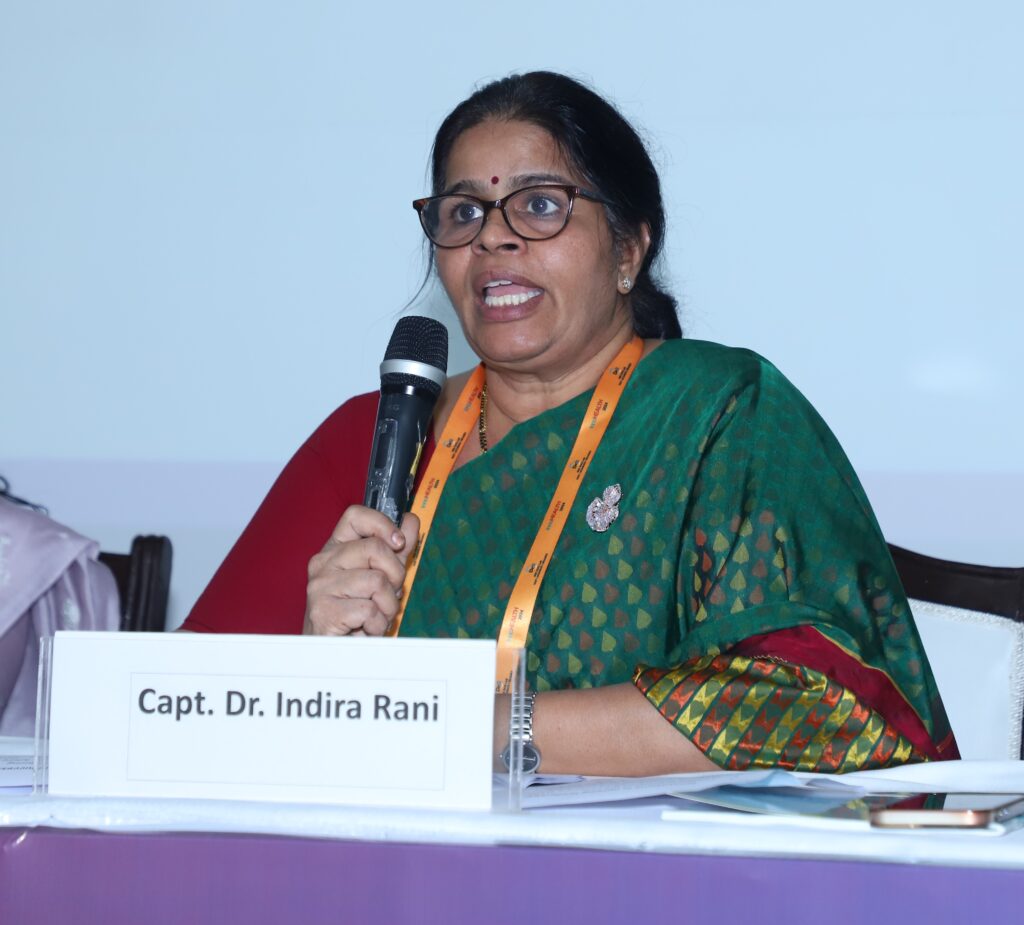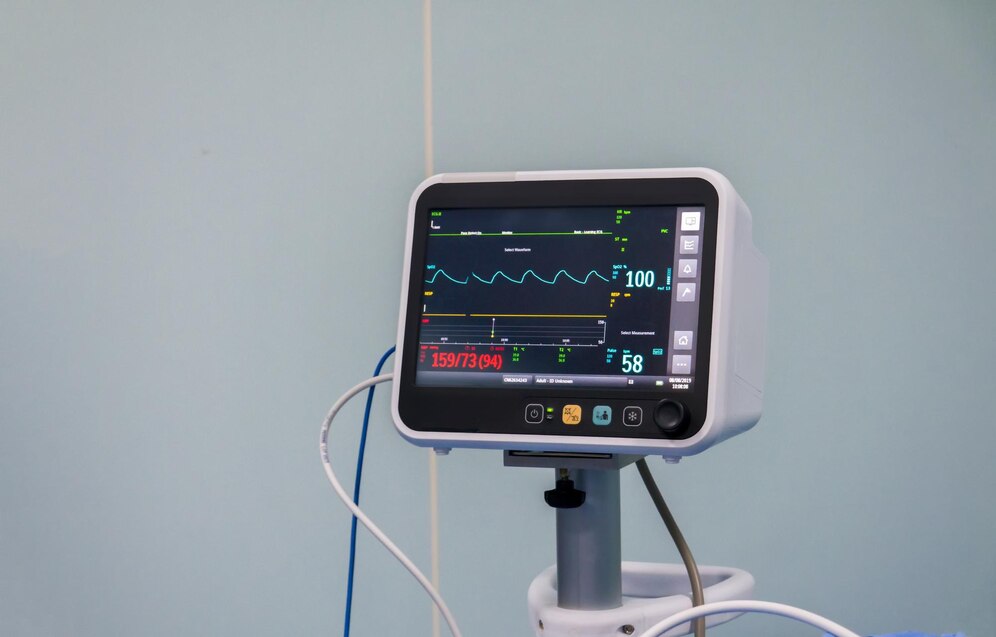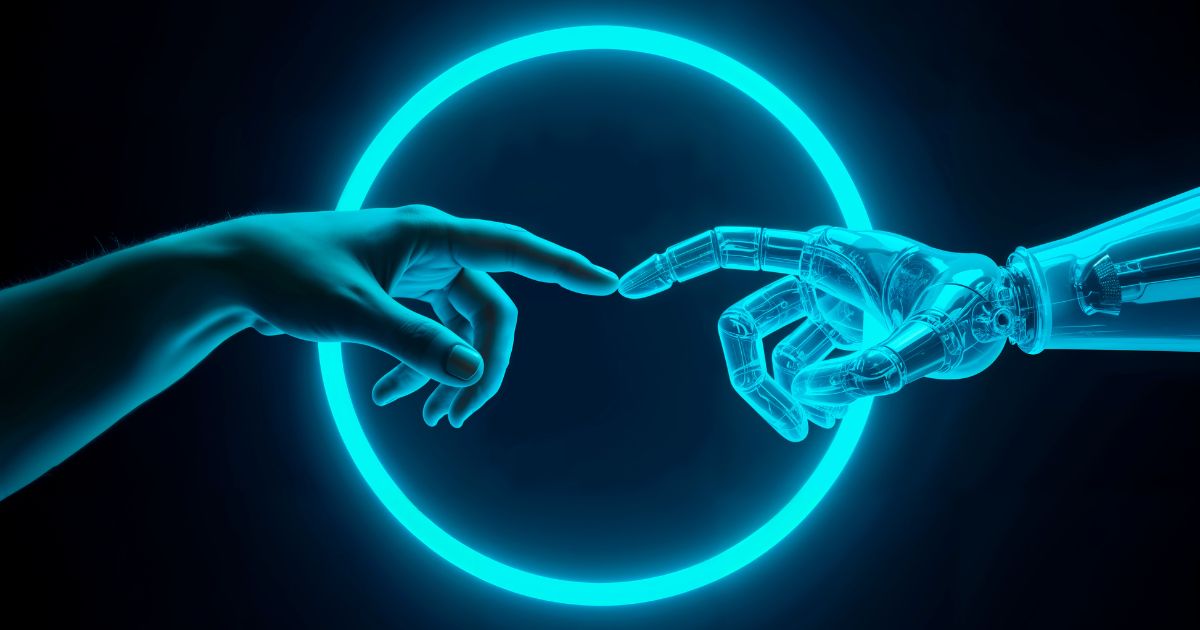
At the InnoHEALTH Conference 2024, Captain Dr. Indira Rani—an esteemed healthcare leader with over 35 years of experience—joined host Mercilina to delve into how India’s nursing workforce is adapting to the rapidly evolving world of Artificial Intelligence (AI) in healthcare.
Dr. Rani, who holds a Doctorate in Health Economics and currently serves as the Chief Nursing Officer at Max Healthcare, brings a unique blend of clinical, academic, and administrative expertise to this transformative discussion.
Technology Meets Compassion in Nursing
Dr. Rani emphasized that while today’s novice nurses entering hospitals are often tech-savvy, their digital fluency is typically limited to smartphones and general-purpose devices—not specialized healthcare technologies.
“In private and government nursing colleges, simulation labs and smart boards are slowly becoming more common,” she said. “But it will still take time before our nursing academics are fully tech-integrated.”
Yet, she stressed an important point: nursing is a human-touch profession. “Technology should enhance, not replace, the essence of nursing—which is care,” she explained.
To strike this balance, Max Healthcare has instituted a rigorous 40-day tech upskilling program for incoming nurses. This training ensures that nurses can confidently use clinical devices and digital platforms while preserving compassionate, patient-centered care.
A Curriculum That Needs to Catch Up
Turning to the educational framework, Dr. Rani shared her concerns regarding India’s nursing curriculum.
Although the Indian Nursing Council (INC) recently introduced a semester-based structure to include modern technology, she noted that AI is still not sufficiently integrated. “When the curriculum was designed, AI hadn’t yet reached its current boom. Today, with robotics and digital platforms entering operation theaters, we need to catch up,” she remarked.
Dr. Rani called for urgent curriculum reforms to incorporate AI, data literacy, and healthcare innovation, ensuring future nurses are not just reactive users but confident co-navigators of evolving healthcare systems.
AI as an Ally, Not a Threat
Contrary to the common fear that AI might replace human roles, Dr. Rani offered a more optimistic perspective.
“Nurses won’t be replaced by AI. Rather, AI will help reduce their burden and improve efficiency,” she said. From managing non-clinical tasks like monitoring IV drips or responding to patient call bells, to preventing documentation errors or ensuring infection control, AI can automate routine duties, giving nurses more time to focus on meaningful patient interactions.
“In the next two to three years, we’ll see a full merge of AI into bedside nursing,” she predicted, emphasizing the need for nurses to learn how to ‘prompt’ AI tools effectively, just like surgeons adapt to robotic assistance in complex procedures.
The Line Between Tech and True AI

Dr. Rani clarified a common misconception: not all hospital technology is AI. For example, intensive care units already use technological tools like hemodynamic monitors, which raise alarms during vital sign drops. However, true AI goes further, aiding in diagnosis, lab analysis, and real-time surgical decisions.
She cited a recent case where AI alerted a neurosurgeon within seconds that a small tumor fragment was still left in the cranium—a reminder of how powerful AI can be in improving patient outcomes when used wisely.
Final Thoughts
While AI is just beginning to enter Indian hospitals, especially at the bedside, leaders like Dr. Indira Rani are already preparing the next generation of nurses to embrace it—not as a replacement, but as a partner in care.
“AI will never take away the human touch,” she concluded. “But when used thoughtfully, it will enhance care, reduce stress, and lead to better patient outcomes.”
Composed By
InnoHEALTH magazine digital team
Listen to the full podcast on our YouTube channel: https://www.youtube.com/watch?v=c49UDQxfd98

